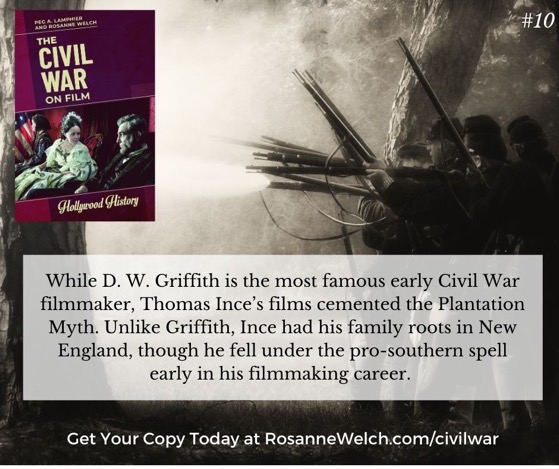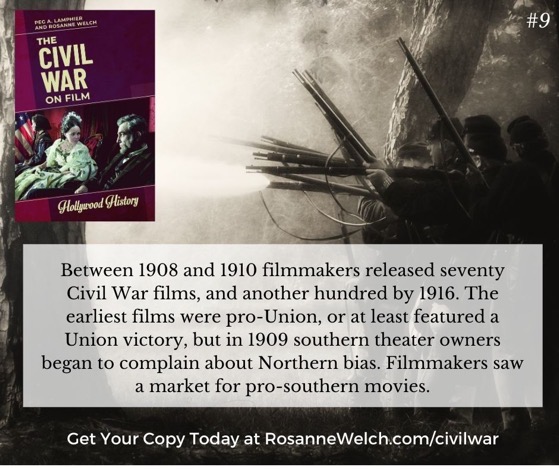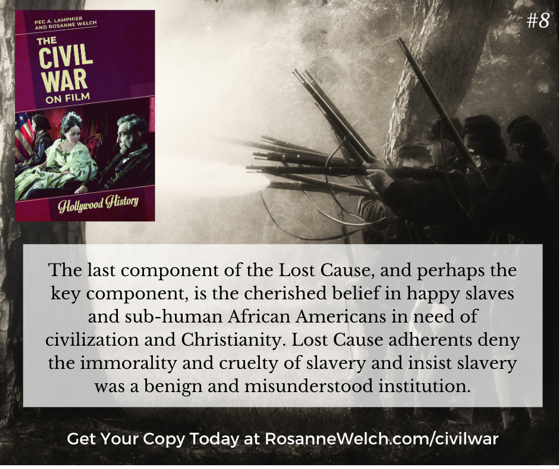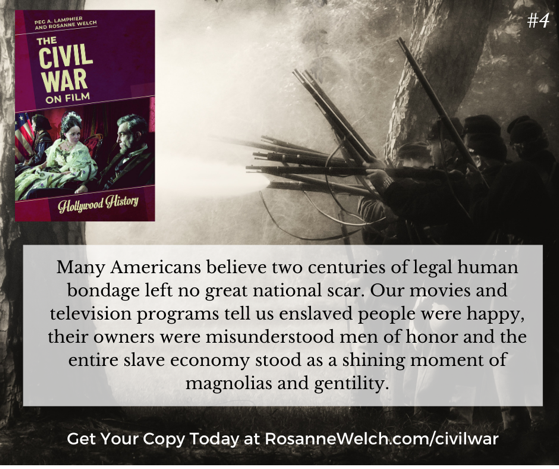Movies that make dubious historical claims can provide rich opportunities for learning. Each of the movies we chose for this volume do a different kind of work and were ‘big’ enough films that they are still widely available should a reader chose to watch them. We also tried to pick films that covered a wide swath of film history or were representative of a certain type of Civil War movie. Most importantly, each film allows for a discussion of different facets of Civil War history.
Movies profiled in this book:









